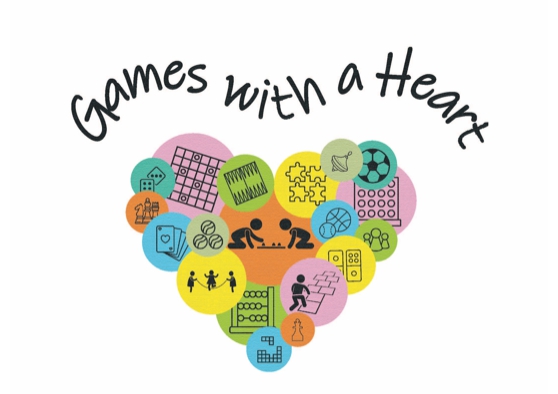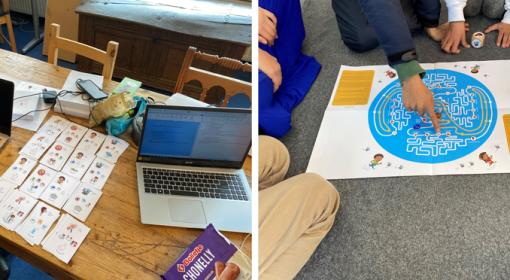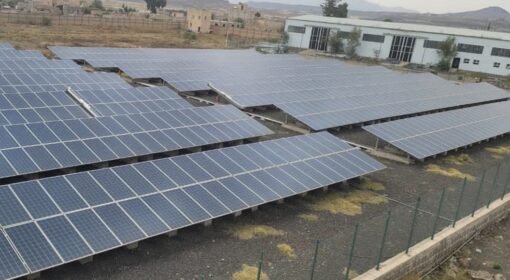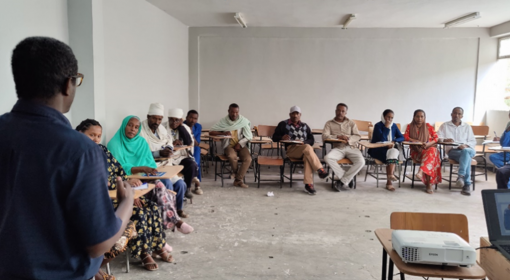by Florencia Rieiro and Hilary Galiwango
We worked together with GIZ Uganda’s Water Supply and Sanitation for Refugee Settlements (WatSSUP) programme team on the adaptation, testing and monitoring of the WASH Quartet game. In this post we would like to take you through some of the key learnings from testing the game in the humanitarian context of northern Uganda.
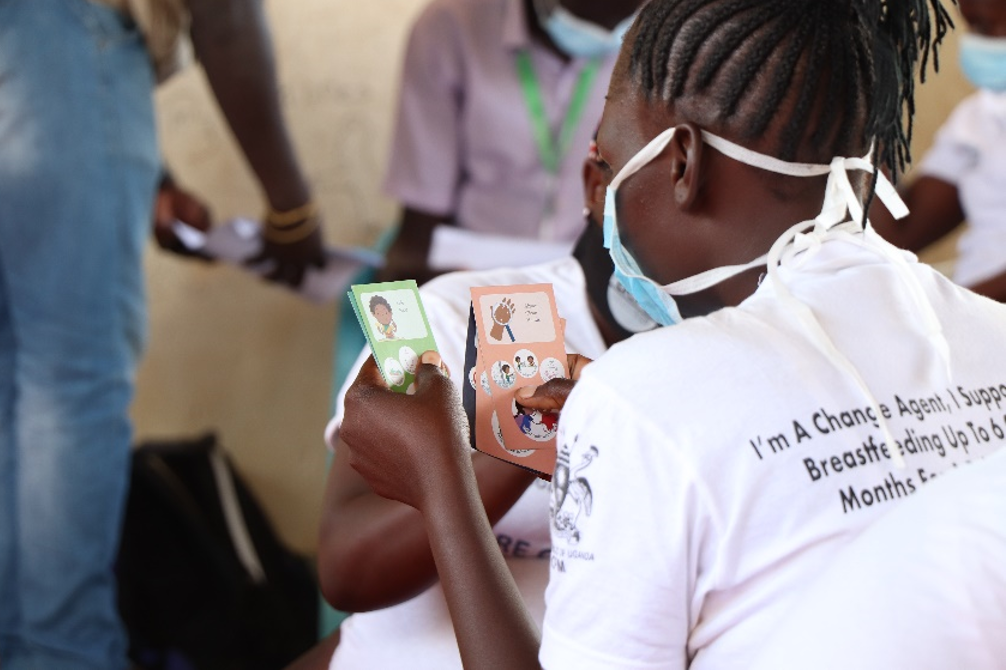
The WASH Quartet is an educational card game for children over 7 years as well as adults. The aim of the game is to raise awareness around safe hygiene practices. The game consists of winning quartets (sets of four cards) of each category: Safe Drinking Water, Always Clean Hands, Clean Hands when Caregiving, Safe Sanitation, Safe Food, Unhappy Flies and Disease Prevention.
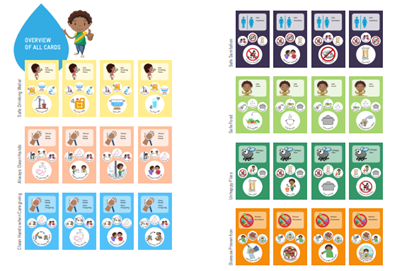
Working under this project involved adapting the WASH Quartet game to the context, interests and needs of the refugee communities living in northern Uganda. We found out that the game, which we usually played with school children, could also be appealing to adults, and this allowed us to work on a new category of the game– one on caregiving and breastfeeding. We tested the game in Arua and Yumbe districts, but before that, we facilitated a training of trainers for community health workers– those who were meant to take the game to their communities, to understand the purpose, rules, and gameplay.
Interestingly, during the 2-day training, new ways of playing the game arose from among the participants and we were able to think of new rules for the game. For example, the ‘Super’ WASH Quartet was proposed as targeted quartet in which the player who forms a quartet of a specific category is the winner.
Together with the training, we developed a WASH Quartet training manual for community health workers to use when they introduce the game to others. We made sure the manual presented and discussed the seven sets of WASH categories available in the game so that community trainers could raise awareness to their neighbours, friends, and families of key WASH aspects. The manual includes a set of mini evaluations for the facilitators to test the knowledge and practices of the players before and after the game was played for some time.
The preliminary version of the game was designed in English. We translated it to Arabic and Kakwa so that the communities from Arua and Yumbe, who came mainly from South Sudan, Sudan and Uganda, could comfortably play it. The training manual was also translated to Arabic with the same aim.
After the game was played for three months, we conducted 159 surveys in two programme zones from Yumbe to find out about the enjoyability of the game, also to monitor changes in WASH knowledge and practices among the targeted population. Some of the main results are presented below.
Overall, 91% of the participants mentioned that they enjoyed playing the game and wanted to play it again. 8.2% of the players mentioned they didn’t find the game that fun, but they wanted to play it again which still implies a positive result and the opportunity to adapt some of the rules or gameplay to make it more appealing to this group of players. Only 0.6% of the players reported that they would not play the game again.
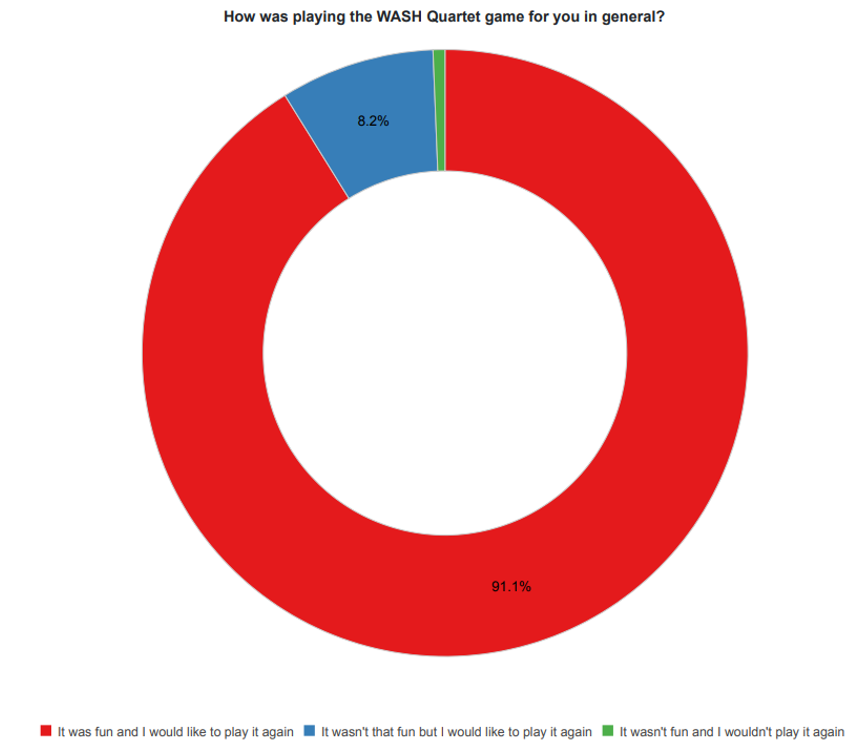
Positively, a major part of the interviewed population stressed that they learnt something from the game. The three key WASH practices learned or reinforced by playing the game were related to the game categories ‘Drink safe water’, ‘Wash hands with soap at critical times’ and ‘Practise safe food hygiene’. In the case of the two first practices, they were also understood by the players as the WASH aspects that needed the most urgent attention in their areas.
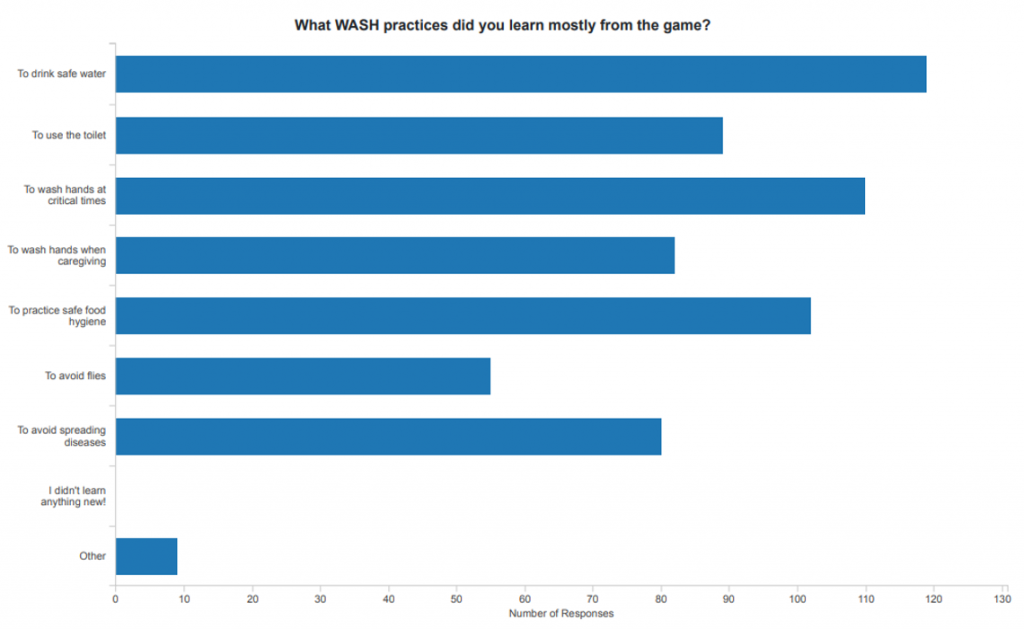
Learning about new WASH practices does not necessarily translate into practising them. Regarding the new WASH practices acquired, players reported that the game had mainly influenced them to avoid defecation in the open/dig pit latrines and build toilets, wash their hands with soap under the theme ‘always clean hands’, and handle safe hygiene practices while cooking and eating. It is also important to notice that 16 players mentioned that they learned how to make a tippy tap after playing the game. And relatively small as the number might be, 6 players mentioned they have started to raise awareness about the importance of defecating in toilets, washing hands with soap and keeping their environment clean. This is a key finding for the Games with a Heart team, as the WASH Quartet aims for players not only to incorporate new behaviours but speak up and talk about safe WASH practices with relatives and community members to raise their attention.
To measure their level of awareness, participants were also asked what would have happened if they wouldn’t have practised the key WASH activities they mentioned carrying out. Most of the players mentioned that if they did not carry out the safe WASH behaviours identified above then diseases would spread easily among their families and communities. They also reported high chances of having diarrhoea and malnutrition. Interestingly, one respondent mentioned ‘not being happy’ if the WASH practices fostered by the game were not conducted; this sentence may provide an accurate overview of their level of awareness.
Players were specifically asked what they found the most positive about the game. Most of them said that they learnt something from the game. Going into more detail, they raised that the game made learning and incorporating WASH practices into their daily activities come easier. They also stressed that playing the game brought happiness as well as the possibility to connect with others and release stress; some of the players liked the fact that they found themselves busy during the gameplay. There were also positive comments about the game being easy to play by following the icons/cartons that appear on the cards. Some motivating quotes from the players include:
- “The WASH Quartet makes those who don’t laugh to open their mouths and laugh, it also pushes the time and you realize the day has ended”
- “Happiness. Whenever we meet to play the game, everyone becomes happy. Playing the game has helped us improve the sanitation and hygiene of our neighbours by practising the practices on the game”
- “The game acts as a source of entertainment and makes people learn new lessons”
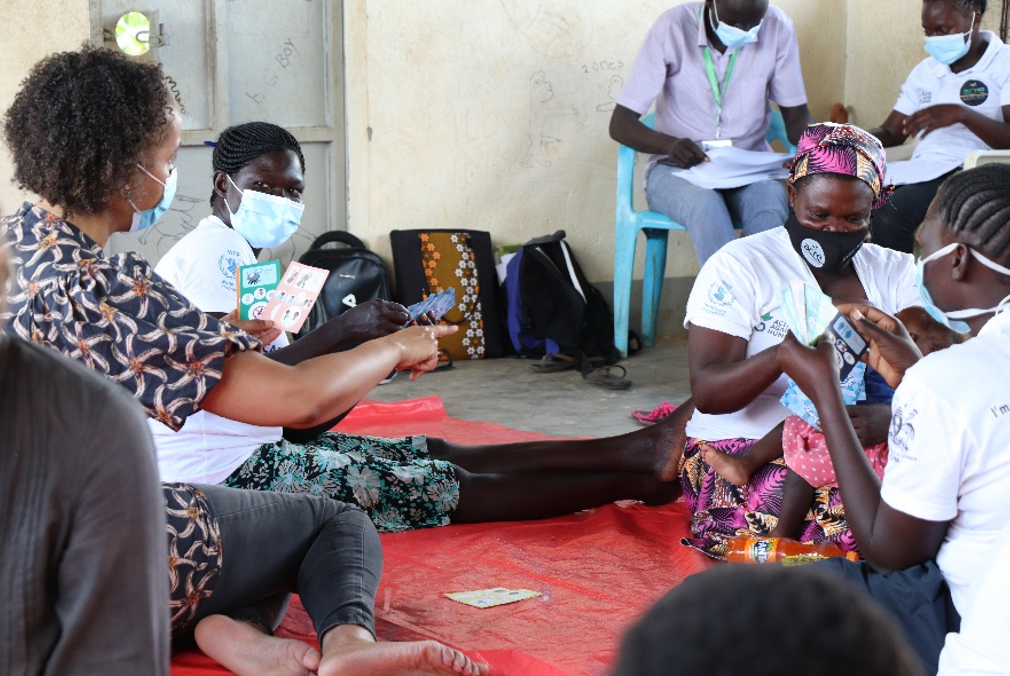
Furthermore, players were asked what they would like to change in the game. According to the data collected, language modifications were the main priority, followed by the game covering more WASH topics. Concerning the language adaptations, participants mentioned changing the Arabic translations to Juba Arabic and adding some other local languages such as Acholi, Madi and Lugbra. Regarding WASH topics, players raised the issue of including information about other practices related to WASH such as how to build pit latrines, malaria prevention, nutrition, and breastfeeding/complementary feeding. There were also other topics suggested beyond WASH which include drugs abuse and requesting shelter in Uganda. Having the WASH Quartet printed in other languages and covering other WASH topics can be easily included in the game. Moreover, the game also offers the possibility to cover other topics beyond WASH that are affecting refugees’ lives; this is something we would like to explore further.
Playing the game in northern Uganda was an inspiring experience for the Games with a Heart team. We had the opportunity not only to enjoy by seeing others play the game, but the results reassure the importance of playing games in humanitarian contexts where stress, trauma, and the lack of feeling of being productive or busy easily arise among the population. Games can offer limitless benefits to learn, connect and change realities, during and after the game play. Games can also be relevant for ongoing development programmes which can become monotonous with time.
